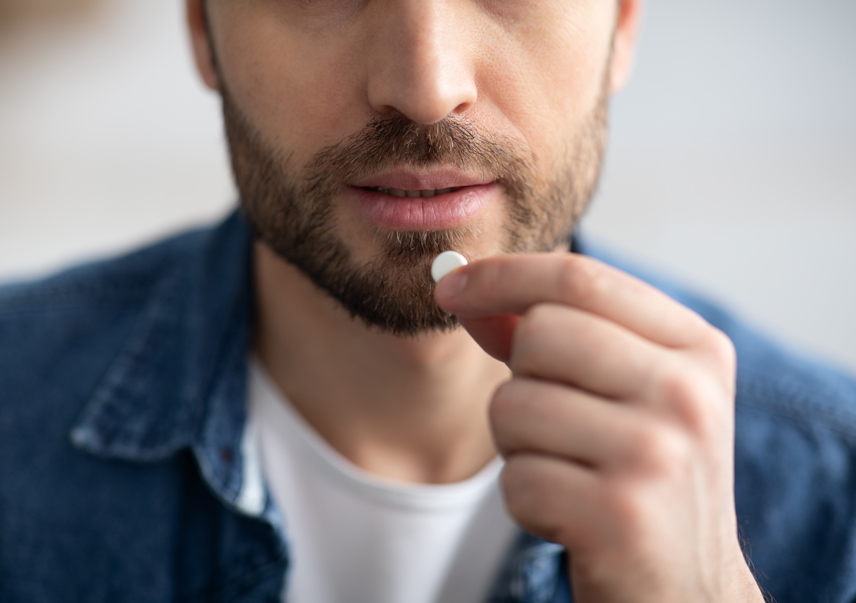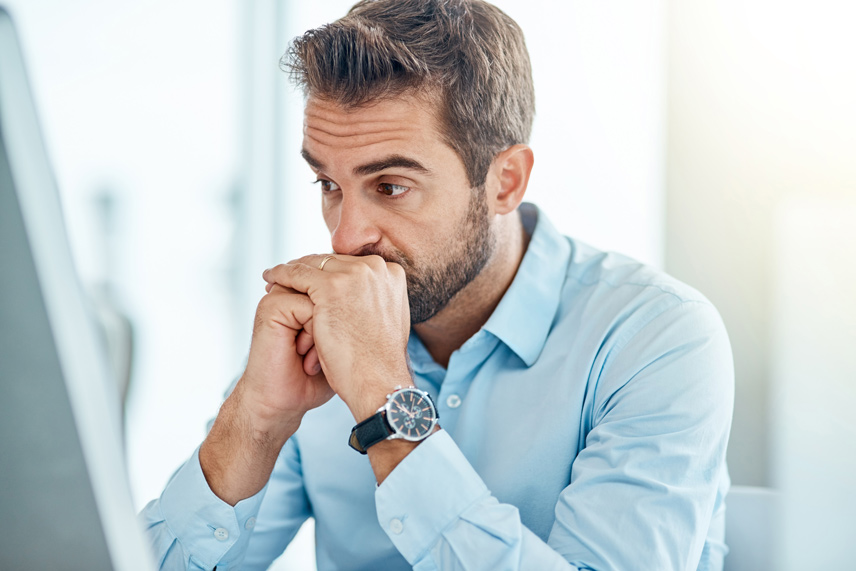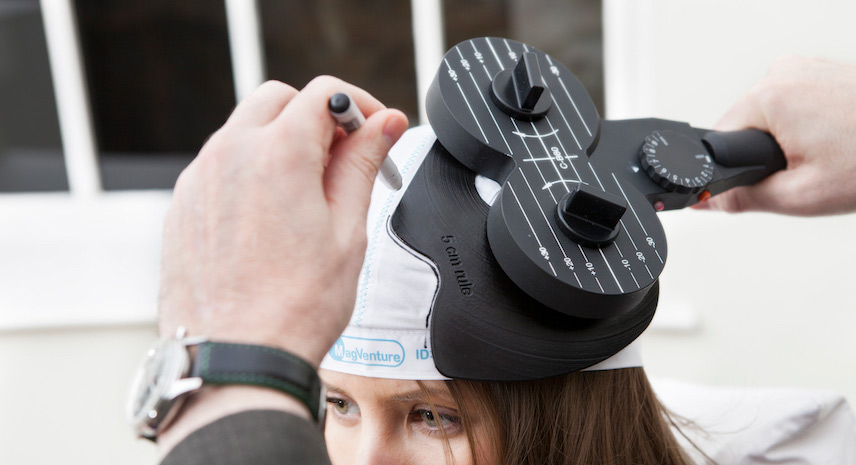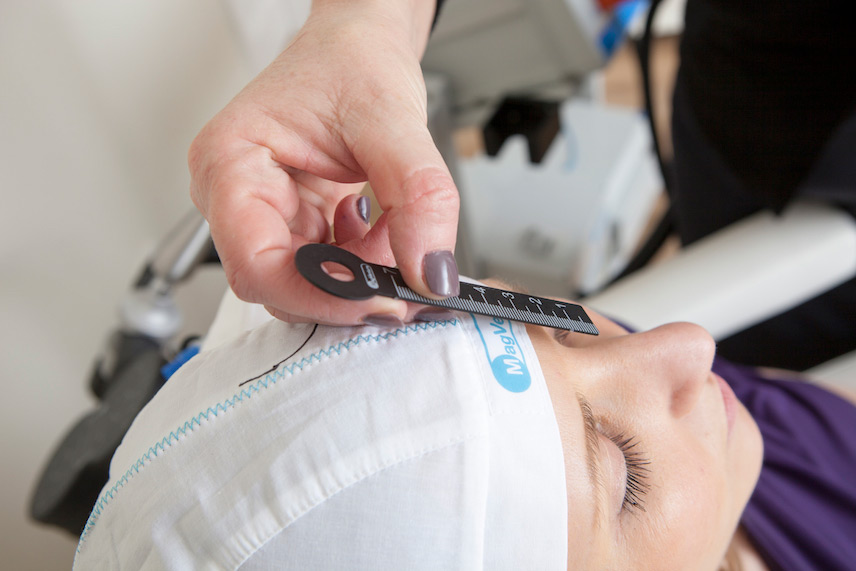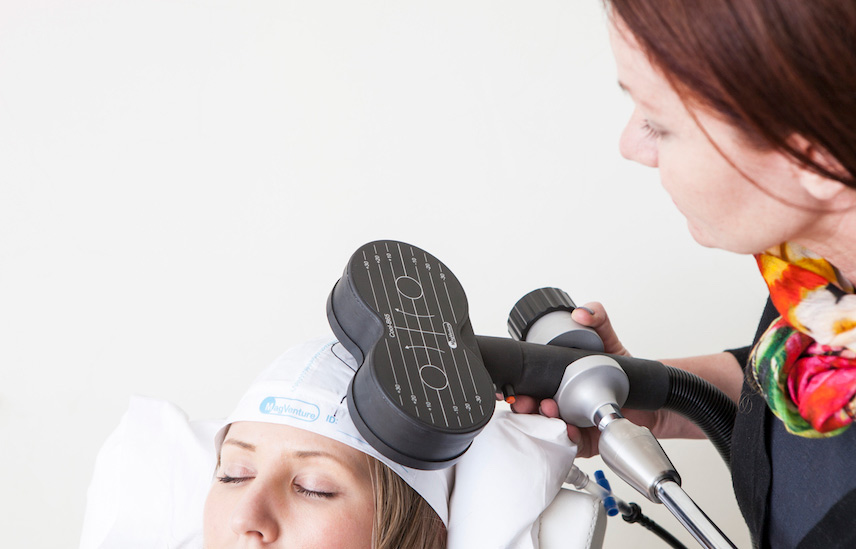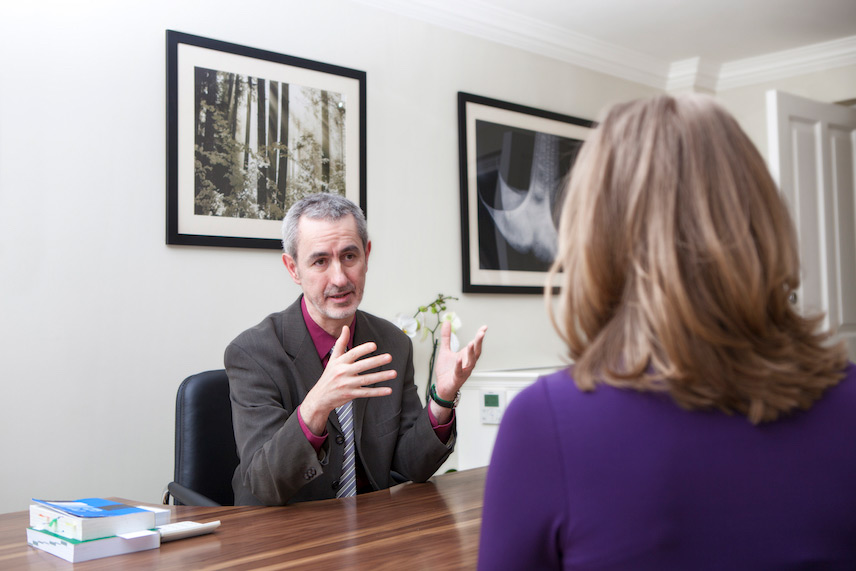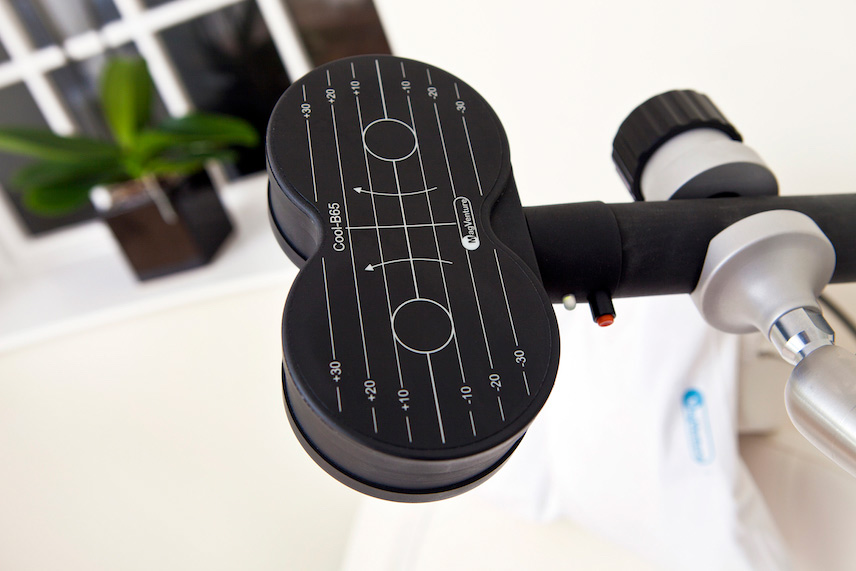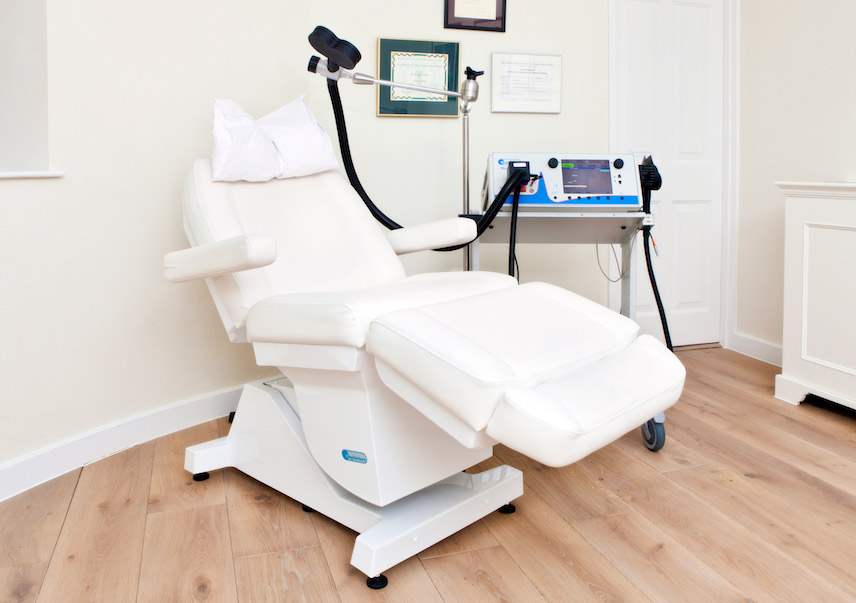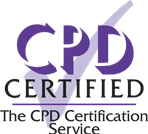[vc_row row_scroll_icon="no"][vc_column][vc_column_text] Substance use disorder (SUD), or addiction, is a complex condition which leads to a person’s inability to control their use of a legal or illegal substance. It can be treated with Repetitive Transcranial Magnetic Stimulation (rTMS). An individual with SUD can form an addiction to any dependence-inducing substance, including stimulants such as cocaine (including crack and powder) and crystal methamphetamine (commonly known as meth), depressants such as gamma-Hydroxybutyric acid (GHB), and dissociative anaesthetics such as ketamine. According to a Government report, individuals beginning treatment in 2021 to 2022 with a powder cocaine addiction increased by 11% (from 19,209 to 21,298). Meanwhile, the number of people in treatment for crystal methamphetamine addiction has gradually increased since reporting began in 2005. Living with SUD can negatively impact your health, work, relationships and quality of life. Accepting that you have a problem with substance use, and admitting that you need help, are the first steps towards getting better. We can support you in your journey to recovery. rTMS Treatment For SUD There are a number of methods for treating SUD, including talking therapies; medicines to manage withdrawal symptoms; detoxification; and self-help and support groups. At The London Psychiatry Centre, we offer a treatment for substance use disorder called rTMS, a non-invasive alternative to traditional treatment. rTMS has been successful where other treatments have not in managing cravings in combination with other therapies, such as Cognitive Behavioural Therapy (CBT). The London Psychiatry Centre has introduced rTMS in the UK and has the best experience of how to use this innovative and non-invasive intervention to a variety of conditions. rTMS involves the use of magnetic stimulation to alter activity in a specific area of the brain. It works by passing short pulses of a magnetic current through a coil of wire encased in plastic and placed next to a patient’s scalp. The patient does not feel pain during this treatment. This treatment is particularly effective in the management of cravings for stimulant substances, and potentially GHB and ketamine once the patient has undergone a detox. [/vc_column_text][/vc_column][/vc_row][vc_row row_scroll_icon="no" css=".vc_custom_1501497477938{margin-top: 20px !important;}"][vc_column][eltd_accordion style="toggle"][eltd_accordion_tab icon_pack="" title="What is substance use disorder?"][vc_column_text]Substance use disorder (SUD) is a mental health condition also known as addiction. It exists on a spectrum; some people may have a very mild addiction to substances, whereas others may be completely dependent to the point where it greatly impacts their life and relationships. Where a person is on the addiction spectrum depends on genetic, environmental...
[vc_row row_scroll_icon="no"][vc_column][vc_column_text] Around seven out of 10 patients with obsessive compulsive disorder (OCD) will benefit from cognitive behavioural therapy in the form of exposure and response prevention, or medication, or a combination of the two treatments. However, if you do not experience symptom relief with these therapies, you may find Repetitive Transcranial Magnetic Stimulation (rTMS) to be more effective. rTMS uses magnetic stimulation to stimulate areas of the brain that regulate mood. Alternative treatments for OCD have, in the past, been limited. rTMS offers a viable alternative, does not require medication or surgery, and patients do not have to undergo downtime after treatment. rTMS is a groundbreaking new OCD treatment that has a high degree of success. [/vc_column_text][/vc_column][/vc_row][vc_row row_scroll_icon="no" css=".vc_custom_1500285514329{padding-top: 20px !important;}"][vc_column][eltd_accordion style="toggle"][eltd_accordion_tab icon_pack="" title="What is obsessive compulsive disorder?"][vc_column_text] OCD is a mental health disorder that centers around obsessions (repeated thoughts, urges and/or worries) and compulsions (actions that are acted out in order to reduce anxiety caused by the obsession). OCD is often portrayed as a compulsion for cleaning objects or oneself, but this is a very simplified depiction of one common OCD-related compulsion. [/vc_column_text][/eltd_accordion_tab][eltd_accordion_tab icon_pack="" title="What are the existing treatments for OCD?"][vc_column_text] If you have OCD you may be able to adopt coping strategies, build a support network and manage your stress in order to alleviate the symptoms of OCD yourself. This can be accomplished alongside cognitive behavioural therapy (CBT), particularly exposure and response prevention (ERP), which involves being exposed to the anxiety-causing obsession and learning to control the need to act out the compulsion. Medication may also be offered alongside or instead of CBT. [/vc_column_text][/eltd_accordion_tab][eltd_accordion_tab icon_pack="" title="What is rTMS?"][vc_column_text] Repetitive Transcranial Magnetic Stimulation (rTMS) is used here at The London Psychiatry Centre to treat a number of mental health conditions, including OCD. It is a pain-free, non-invasive therapy that does not require the use of medication. rTMS produces highly successful results in the treatment of OCD, and is often undergone by patients who have had unsuccessful experiences with other treatments. [/vc_column_text][/eltd_accordion_tab][eltd_accordion_tab icon_pack="" title="What does rTMS involve?"][vc_column_text]You will undergo an initial assessment, during which the clinician can confirm the diagnosis of OCD. If the diagnosis is confirmed, the clinician will run through an rTMS safety checklist to gauge your suitability for the treatment. They will then explain to you the process of rTMS, before proceeding with treatment. You will sit comfortably in a chair with an rTMS device positioned on your head. The device uses a magnetic field which influences...
Dr Andy Zamar – Medical Director and Founder General psychiatry only Initial new patient consultation* (up to 60 minutes) £800 Long follow-up consultation* (up to 40 minutes) £750 Follow-up consultation* (up to 20 minutes) £450 Treatment for bipolar and treatment-resistant depression (non-patented treatment) Expert opinion* (up to 60 minutes) £5,000 For treatment of the programme under Dr Zamar Short follow-up consultation* (up to 20 minutes) £1,500 Long follow-up consultation* (up to 40 minutes) £3,000 The Zamar Protocol ® (Precision guided high-dose thyroid hormones and rTMS protocol) patented programme for bipolar and treatment-resistant depression Expert opinion* (up to 60 minutes) Price on application The Zamar Protocol ® (Precision guided high-dose thyroid hormones and rTMS protocol) patented programme for bipolar and treatment-resistant depression For Non-UK residents and Non-UK nationals Expert opinion* (up to 60 minutes) £5,000 For treatment of the programme under Dr Zamar Short follow-up consultation* (up to 20 minutes) £1,500 Long follow-up consultation* (up to 40 minutes) £3,000 All other consultant psychiatrists (excluding Dr Andy Zamar) Including treatment for bipolar and treatment-resistant depression (non-patented treatment) Initial new patient consultation* (up to 60 minutes) £600 Follow-up consultation* (up to 20 minutes) £375 Long follow-up consultation* (up to 40 minutes) £550 EMDR treatment* (40 minutes) £550 Additional services Prescriptions outside of appointment £75 Medical reports from £100 Domiciliary visits Price by arrangement Eating disorder services With Dr Evangelia Tsapakis Initial new patient consultation* (up to 60 minutes) £800 Long follow-up consultation* (up to 40 minutes) £650 Follow-up consultation* (up to 20 minutes) £450 Preventive clinic assessment Assessment with Consultant Psychiatrist (up to 2 hours) £2,000 Adult ADHD assessment Adult ADHD assessment £3,750 Tests available Genetic testing (mouth swab) £250 ECG £150 Pathology services from (Price dependent on individual tests taken) £110 Repetitive Transcranial Magnetic Stimulation (rTMS) Initial consultation £600 Treatment+ £2,000 rTMS measurement appointment^ £375 Maintenance treatment £400 per rTMS session Psychotherapist Therapy session* (up to 60 minutes) £220 Couple therapy session* (up to 60 minutes) £280 Clinical psychologist Therapy session* (up to 60 minutes) £250 Nutritionist Initial assessment* (up to 90 minutes) £330 Follow-up sessions* (up to 60 minutes) £220 Personalised meal plans £175 Child & Adolescent Mental Health Services (CAMHS) Fees CAMHS consultant psychiatrist Initial assessment consultation* (1.5hrs) £1,125 Follow-up consultation* (up to 60 mins) £750 Follow-up consultation* (up to 30 mins) £375 CAMHS clinical psychologist Initial assessment consultation* (1.5hrs) £375 Therapy session* (up to 60 mins) £250 CAMHS clinical nurse specialist Initial assessment consultation* (1.5hrs) £330 Follow-up sessions* (up to 60 mins) £220 Additional services Repeat prescriptions £75 Medical reports from £100 Assessments CAMHS ADHD assessment A team assessment including full comprehensive cognitive and ADHD assessment as well as school liaison (if necessary). Report produced with summary and observations. £3,500 CAMHS ASD assessment A team assessment including full comprehensive cognitive and ASD assessment as well as school liaison (if necessary). Report produced with summary and observations. £5,000 Important information * These prices are for Microsoft Teams, telephone, and face to face consultations + Price per week including 5 rTMS sessions. ^ This is required every week after 5 working days for those in acute treatment, and once per week during maintenance treatment. Payable...
Repetitive Transcranial Magnetic Stimulation (rTMS) is a cutting-edge, non-invasive depression treatment that has minimal side effects. It has achieved success where antidepressant drugs have failed....
Repetitive Transcranial Magnetic Stimulation (rTMS) treatment with The London Psychiatry Centre is as relaxed as possible. During treatment you will be comfortably seated in a chair with your head leaning back. A vacuum pillow is placed around your neck to support your head. You will be required to wear a personalised cotton cap during treatment. This allows us to ensure correct positioning of the coil, which will deliver the magnetic pulses. The treatment will be delivered using a magnetic coil. The coil is normally positioned on the left or right Dorso-Lateral Prefrontal Cortex (an area a few inches above the temple beneath the skull). You will be still for the duration of your treatment (approx 30 minutes). We will do everything we can to ensure our patients are at ease during the treatment. rTMS treatment is completely non-invasive and you won’t need to be sedated. Some patients do experience slight tingling sensations or headaches at the start of the treatment but your nurse will make sure you feel comfortable throughout the procedure. You will be able to go straight back to work after the treatment. Repetitive Transcranial Magnetic Stimulation (rTMS) treatment is a cutting edge treatment, but the nature of this is that patients are sometimes wary. Research has shown that rTMS provides effective treatment for depression without the side effects normally experienced with traditional medication. [vc_row row_scroll_icon="no" content_aligment="center"][vc_column][eltd_icon icon_pack="linear_icons" linear_icon="lnr-phone" size="eltd-icon-medium" type="normal" icon_animation=""][vc_column_text]If you have any questions about the rTMS procedure or would like to book in for a consultation, please call us now on 020 7580 4224.[/vc_column_text][/vc_column][/vc_row]...
Treatment for depression using rTMS is short but intense. You will have five sessions each week. The average treatment length is four to six weeks. Some patients have reported benefits from the first week. The cost of the initial assessment with the psychiatrist is £600 and rTMS is £2,000 per week. You will also require a review appointment with the rTMS consultant each week to re-prescribe your treatment and review your progress. Indeed, because of the cost of this state of the art equipment and the level of expertise involved, rTMS cannot be a ‘cheap’ treatment. But, when we consider the benefits, the cost pales in comparison. rTMS treatment for depression, anxiety, pain management of fibromyalgia, and tinnitus is available on a private basis at The London Psychiatry Centre without the need for referral or long waiting lists. [vc_row row_scroll_icon="no" content_aligment="center" css=".vc_custom_1500370122595{margin-top: 20px !important;}" el_id="contact-text"][vc_column][eltd_icon icon_pack="linear_icons" linear_icon="lnr-phone" size="eltd-icon-medium" type="normal" icon_animation=""][vc_column_text]If you would like to speak to us about how this cost is spread out over the course of your treatment, please call our team on 020 7580 4224.[/vc_column_text][/vc_column][/vc_row]...
The side effects experienced from Repetitive Transcranial Magnetic Stimulation (rTMS) are very minimal. rTMS is an effective depression treatment without the traditional side effects of medication. Short term side effects you may experience include headaches, tingling or discomfort at site of treatment and lightheadedness. Studies have shown that although long term negative side effects from rTMS are minimal, there is a very small risk of seizure with rTMS, however according to the University of Michigan, in 10,000 treatments there was not a single seizure episode recorded. [vc_row row_scroll_icon="no" content_aligment="center" css=".vc_custom_1500370122595{margin-top: 20px !important;}" el_id="contact-text"][vc_column][eltd_icon icon_pack="linear_icons" linear_icon="lnr-phone" size="eltd-icon-medium" type="normal" icon_animation=""][vc_column_text]If you would like more information on the side effects of rTMS or would like to book a consultation with one of our experts, please do call us on 020 7580 4224.[/vc_column_text][/vc_column][/vc_row]...
Here at The London Psychiatry Centre we have an extensive body of knowledge covering thousands and thousands of patient examples. Numerous clinical trials, medical research studies and peer-reviewed articles have confirmed the value of Repetitive Transcranial Magnetic Stimulation (rTMS) in treating treatment-resistant depression. You can rest assured that rTMS is regarded as a considerably safe treatment, with very low risk of side effects. Frequently, it works where other interventions have failed. rTMS treatment is completely non-invasive: it doesn’t require any needles or anaesthetic. Since the only thing entering your body is pure energy, rTMS is free from the many side effects associated with antidepressant medications (stomach complaints, lowered libido, etc.). It is administered as an outpatient procedure for just over half an hour per session. [vc_row row_scroll_icon="no" content_aligment="center"][vc_column][eltd_icon icon_pack="linear_icons" linear_icon="lnr-phone" size="eltd-icon-medium" type="normal" icon_animation=""][vc_column_text]If you would like more information about rTMS or would like to speak to a member of our team about booking a consultation, please don’t hesitate to call us on 020 7580 4224.[/vc_column_text][/vc_column][/vc_row]...
[vc_row row_scroll_icon="no"][vc_column][vc_column_text] Repetitive Transcranial Magnetic Stimulation (rTMS) is an effective, drug-free, non-invasive treatment for depression which uses magnetic stimulation to stimulate areas of the brain that regulate mood. The human brain is inherently an electrical organ that functions through the transmission of electrical signals between nerve cells. rTMS treatment works with your body’s natural processes by simply increasing the number and frequency of such transmissions. rTMS employs magnetic energy to stimulate an area of the brain that regulates mood. As such, it can selectively alter activity in concentrated areas of the brain, bringing about desired effects that have been shown to be helpful in treating a variety of mental health problems. Research has shown that a large proportion of patients who were unresponsive to antidepressant medication experience a significant improvement in their depressive symptoms when treated with rTMS – one in three of these patients completely recovered. How Does Repetitive Transcranial Magnetic Stimulation (rTMS) Work? rTMS influences electrical brain activity through a pulsed magnetic field. This magnetic field is created by passing quick current pulses through a coil of wire. The coil of wire is encased in plastic and placed close to a client’s scalp in order for the magnetic field to be focused on particular areas of the brain. The magnetic field can safely penetrate the scalp and scull without pain, to create a current in targeted brain cells. Because this stimulation is given at regular intervals it is referred to as repetitive TMS, or rTMS.[/vc_column_text][/vc_column][/vc_row]...
[vc_row row_scroll_icon="no"][vc_column][vc_column_text][/vc_column_text][/vc_column][/vc_row][vc_row row_scroll_icon="no"][vc_column offset="vc_hidden-sm vc_hidden-xs"][vc_column_text] [embed width="560" height="315" ]https://www.youtube.com/embed/4I01XfQYQio[/embed] Video: rTMS Treatment Results [caption id="attachment_5523" align="alignright" width="428"] Figure 1a: The London Psychiatry Centre Recovery Rates[/caption] [caption id="attachment_5519" align="alignright" width="428"] Figure 1b: Incremental Change (per week) in Patient Improvement[/caption] [caption id="attachment_5520" align="alignright" width="428"] Figure 1c: Scatter Graph Comparing rTMS Treatment to Duration of Illness[/caption] At The London Psychiatry Centre we champion evidence-based treatments for psychiatric problems. We want to see our patients get well; as safely and swiftly as possible. When we decided to introduce repetitive Transcranial Magnetic Stimulation (rTMS) in our clinic it was with prolonged and careful study of the evidence from trials and data spanning several thousand patients in the USA and Canada. We are pleased to say that our own early work with this ground-breaking treatment is bearing the same kinds of incredibly positive results. The chances of full recovery with multiple drug changes and cognitive behaviour therapy are at best up to 1/3, compared to 2/3 with rTMS at The London Psychiatry Centre in just four weeks. At The London Psychiatry Centre, 59% of women and 62% of men who have been treated for Treatment-Resistant Depression (TRD) with rTMS have recovered. We studied a sample of 252 of our patients with treatment-resistant depression in July 2020. These were patients who had been unable to achieve satisfactory results with antidepressant medication. 61% achieved remission (full recovery) within 6 weeks (4 weeks on average) and most were shown to be well for between 1-12 months with maintenance. 35% were non-responders to treatment, 3% responded and the symptoms were shown to have improved by 50% and 1% responded and their symptoms have improved by 75%. There have been no side effects noted. When the STAR D patients were followed up for 12 months after completing their treatment, only 2.7% of patients were well and accounted for, compared to 45% with rTMS with maintenance. We therefore recommend maintenance to our patients in order to maximise the chances of staying well. Note: The comparison results quoted above are when rTMS is compared with figures of the STAR-D protocol for the treatment of resistant depression, the most advanced evidence-based protocol in the world. Such swift, sustained results in patients who have suffered, on and off, for an average 10 years of unrelenting depression, are staggering. In fact, we have found that rTMS patients can return to work within a few weeks of starting treatment – as opposed to the average of nine months with...

